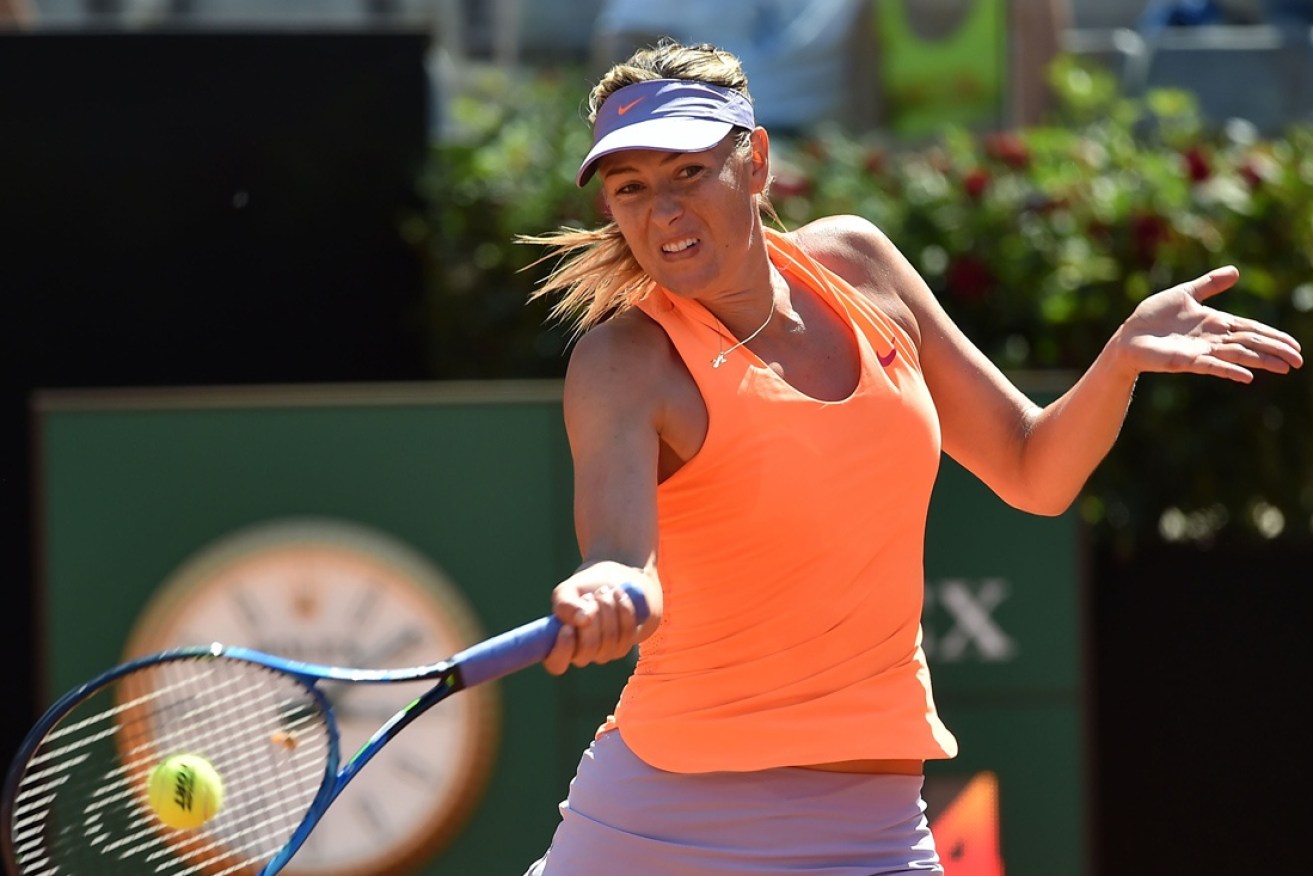Why Maria Sharapova’s exclusion from the French Open is glaringly unfair


Maria Sharapova returned from a drugs ban in April. Photo: Getty
The old saying ‘do the crime, do the time’ clearly never caught on in France.
The French Tennis Federation’s [FFT] decision not to award Maria Sharapova a wildcard for the upcoming French Open is not only unfair – it’s simply not right.
Yes, Sharapova is a convicted drug cheat.
But her suspension for the use of banned substance, meldonium, ended last month. Why should she be punished further?
You haven’t had to look hard for critics of Sharapova, with Canadian Eugenie Bouchard acting as self-appointed bandwagon driver.
But the countless WTA players who have campaigned against her comeback all share an agenda.
For them, life is harder with Sharapova – a five-time Grand Slam winner – on the tour.
That the FFT has bowed to complaints from players is a poor look.
Their decision not to award Sharapova a wildcard means she will play no part in the second grand slam of 2017, given her lowly ranking.
— Maria Sharapova (@MariaSharapova) May 17, 2017
The Russian, who has won the French Open twice, may return to the big stage at Wimbledon in July, given she will play in the qualifiers if not given a wildcard.
But that is not an option in Paris.
It was a relatively unique predicament for the FFT, with only one comparable precedent.
Tennis’ ’Swiss Miss’, Martina Hingis, served a two-year ban for testing positive to benzoylecgonine in 2007, and in her most recent stint on the tour, has won seven doubles majors.
After her ban, she eventually returned to the majors in 2013, at the US Open, but two years before that, showed she still had the ability when teaming up with Lindsay Davenport to win a ‘Women’s Legends Doubles’ title at a grand slam.
The event in question? The French Open.

Sharapova is a player who fans come to watch. Photo: Getty
At this year’s French Open, 24-year-old Constant Lestienne was given a wildcard into the men’s qualifying draw.
That is interesting because Frenchman Lestienne served a seven-month ban for gambling, from September last year. He bet on 220 tennis matches from 2012 to 2015.
Drugs are bad, but illegal gambling is fine? Sounds like the message, mixed in with a bit of nationalist nepotism for a son of France.
These cases show why the FFT’s decision on Sharapova seems personal.
The Women’s Tennis Association [WTA] doesn’t agree with the decision, either.
Organisation CEO Steve Simon said he does “not agree” with “the basis put forward by the FFT for their decision”.
He added: “She has complied with the sanction imposed by CAS [Court of Arbitration for Sport].”
But the most mind-numbingly dumb aspect about the decision is the loss of interest that will occur, given Sharapova’s omission from the event.
With the pregnant Serena Williams sidelined, superstar power on the women’s side of things is skinny to say the least.
The French Open, of course, is renowned for having the lowest patronage of the four majors.
While Sharapova certainly gets a few fans turning the TV off, or at least the volume down, she certainly draws a headline wherever she goes.
And given the army of those against her, she also creates a ‘hero vs villain’ scenario whenever she steps out onto court.
Just check out the hype around her match against Eugenie Bouchard in Madrid recently.
So not only does the decision not make sense from a publicity perspective, it also robs tennis fans of seeing a great player – in addition to being unfair.
The loser in the situation is tennis, and that is surely not the right outcome.
Tennis, like all sports, needs its champions. Whether you like them or not.








